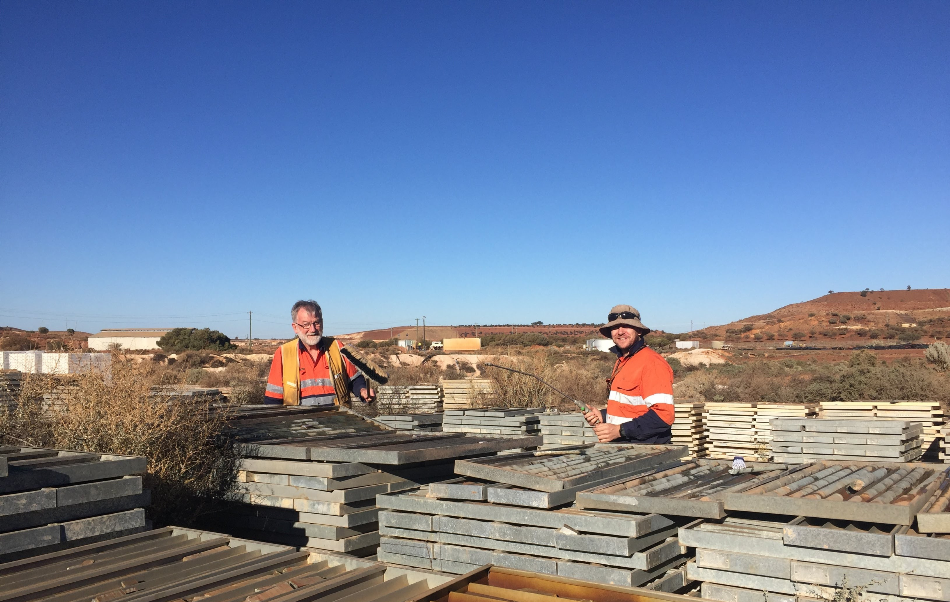May 28 2020
Research by Australia’s national science agency, CSIRO, has produced new understanding of mineralisation in the Yilgarn Province in WA, supported by the Western Australian government through the Minerals Research Institute of Western Australia (MRIWA).
 John Walshe and Adam Bath logging and sampling historical diamond drill core from the Mount Magnet core farm.
John Walshe and Adam Bath logging and sampling historical diamond drill core from the Mount Magnet core farm.
Researchers found the formation of ancient gold deposits during the Archean period over 2,500 million years ago also produced distinctive patterns of chemical alteration in the surrounding rocks.
Looking for these distinctive patterns will make it faster and more efficient for exploration companies to identify potential new deposits.
This could greatly assist exploration in the Eastern Yilgarn region which, despite sharing its Archean geology with the richly-endowed Eastern Goldfields, has produced fewer gold discoveries to date than expected.
Conventional exploration is focused on finding the gold deposit and relies on geological and geophysical mapping, coupled with whole-rock geochemistry, to identify potentially suitable host rocks and structures that might host the deposit.
This research instead studied the chemical system that deposited the gold.
The history of the area is recorded in minerals and mineral reactions in the rocks, for example the reaction of magnetite to anhydrite provides evidence of redox reactions.
With potential for global application, this research reinforces CSIRO’s position as a leader in the development of mineral exploration technologies.
CSIRO’s Director of Mineral Resources, Dr Rob Hough, said their work assists Australian industry by translating science to mineral exploration and supporting the role of Australia’s resources in sustainable global development.
“This research project is a great example of CSIRO’s close collaboration with the Western Australian Government and MRIWA, to support a productive, sustainable and globally competitive mineral resources industry for the benefit of Australia,” Dr Hough said.
“We have world leading research capabilities in Perth and welcome opportunities to develop minerals sector innovation in partnership with the industry and government.”
Jamie Rogers is General Manager Exploration Northern Star Resources Limited, a project sponsor.
“The new approaches developed from the project have challenged conventional wisdom, established new models for the genesis of mineral systems and provided insights into how we might navigate them," Mr Rogers said.
“Northern Star sponsored the project to help fast track and ultimately benefit from the development of new mineral exploration tools and technologies.”
Kevin Cassidy is Chief Geologist FAIG, FSEG, Gold Road Resources, a project sponsor.
“Discovery of the next generation of gold mines requires developing better ways to target and map the gold mineralising systems," Mr Cassidy said.
“Gold Road Resources is utilising the innovative technologies and knowledge advances developed from the ground-breaking project to identify new areas with gold potential and refine understanding of known gold systems, effectively improving the way we go about our exploration.”
Other industry project sponsors included Ramelius Resources Limited, Evolution Mining Limited, Blackham Resources Limited, Echo Resources Limited and Saracen Mineral Holdings Limited.
The technical report summarising the findings of this research can be found at Mapping the Chemical Architecture of Gold Camps.